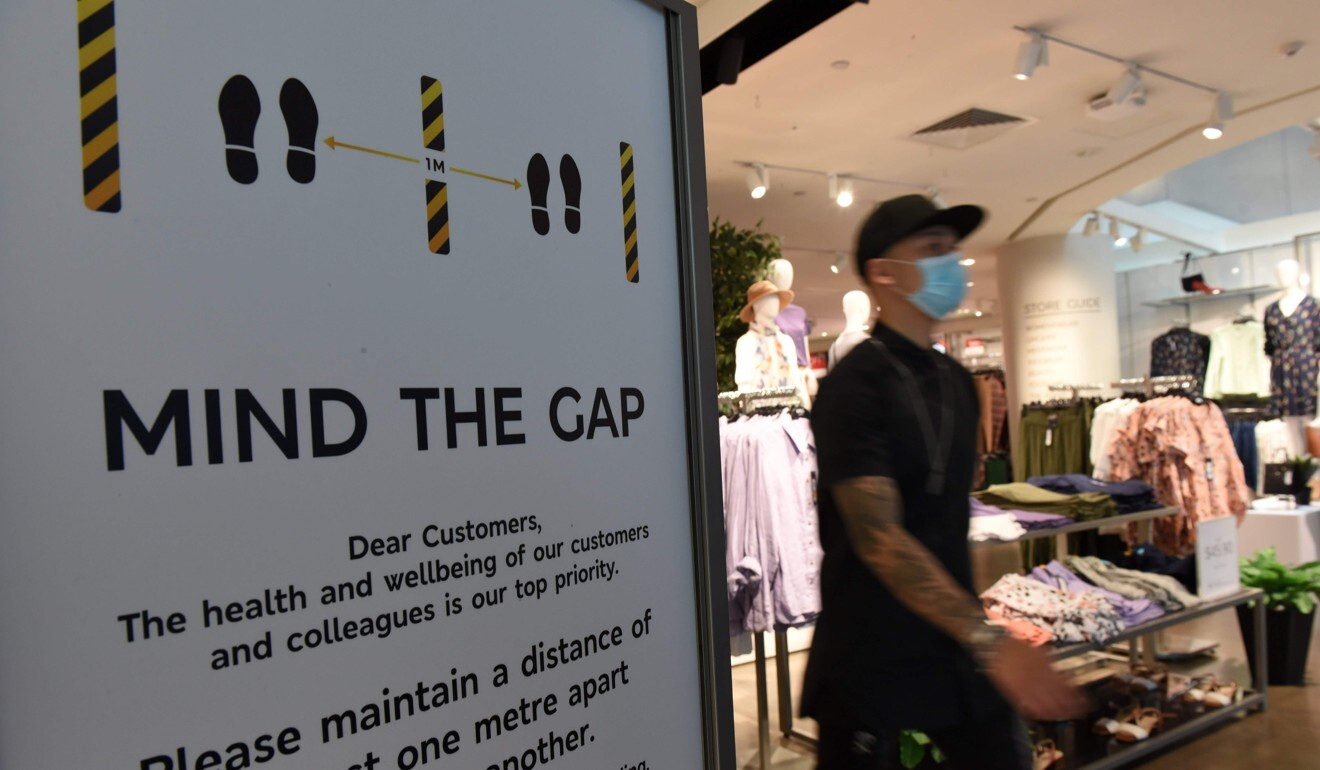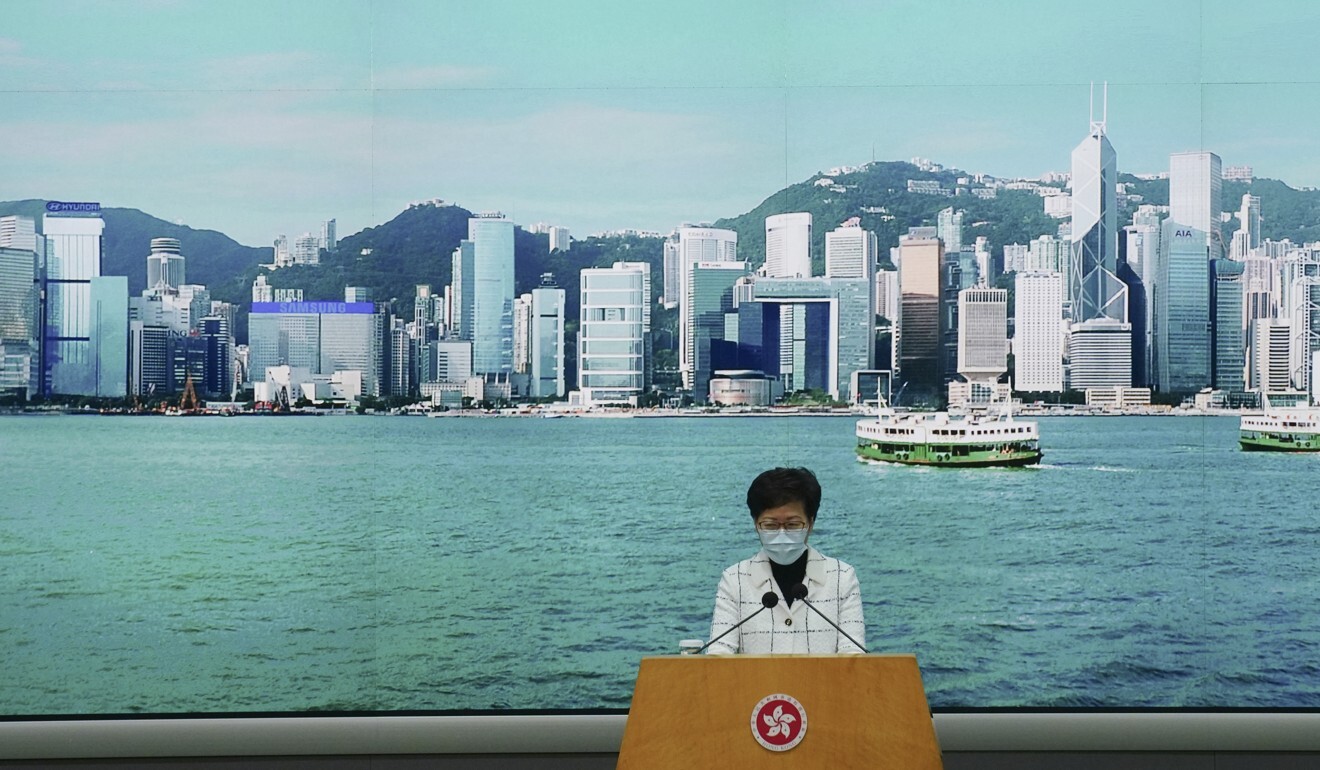Coronavirus threatens Hong Kong’s very future if it cannot protect livelihoods along with lives
- Compared to the US, Britain and Singapore, Hong Kong’s stimulus package is relatively small, at 5 per cent of GDP. The government must do more to protects jobs
- Hong Kong faces a deeper downturn that other global cities as its economy has already been battered by months of protests

Around 30 per cent of the world’s population is now in lockdown as governments implement unprecedented and wide-reaching policies aimed at slowing the spread of Covid-19. Even considering the latest controls by the Hong Kong government, which limit public gatherings to a maximum of four people, restrictions in Europe and North America are more severe than those in Hong Kong.
Lives are important, but so too are livelihoods. While the Hong Kong government has been relatively quick to place restrictions on immigration and people flows in the city to enhance the safety of its citizens from a health perspective, its response to bolster the economy has been much less decisive.
The overall economic impact of Covid-19 is anyone’s guess and will depend on the length and duration of the crisis. However, the impact on some of Hong Kong’s most important sectors is real and immediate. Retail sales figures for February declined 44 per cent year on year, the biggest drop on record.
Globally the picture is also bleak, with Organisation for Economic Cooperation and Development data suggesting that tourism will suffer losses of between 45 per cent and 70 per cent globally in 2020, placing up to 50 million jobs at risk.
In light of these challenges, the governments of the United States, Britain and Singapore have been quick to roll-out unprecedented programmes of support to protect businesses, small and medium-sized enterprises and vulnerable workers.
Singapore’s commitment of US$38 billion represents around 11 per cent of its gross domestic product while the support provided in Britain and the US sits at 15 per cent and 9 per cent of their GDPs respectively.
Importantly, financial support in all three countries is primarily structured to help businesses retain employees over the coming difficult months. A strategic focus on preserving jobs is not just socially responsible, it is also an economic imperative as it means that the economy will be better placed to move strongly to recovery once the situation improves.
Furthermore, populations will have the confidence to continue to buy products and services once conditions allow. It is this confidence that will power the eventual recovery.

The Hong Kong government has, to date, held back significantly in terms of the support it provided, with the last round of relief measures the equivalent of just 5 per cent of GDP.
Most of that support is focused on rental subsidies and financing assistance, rather than specifically designed to ease the pressure on businesses, both large and small, to let workers go. Why does Hong Kong think it can weather the economic crisis better than countries elsewhere?
Could it be because the industries affected are not important to the economy? No. The government’s own data shows that the aviation sector, for example, is responsible for around 10 per cent of GDP, supports 330,000 jobs, and is critical in supporting the city’s four economic pillars – financial services, tourism, trading and logistics, and producer and professional services – which in turn account for well over half of the city’s GDP.
Or is it because the government cannot afford to provide support? No. Hong Kong boasts one of the world’s largest fiscal reserves of about HK$1.1 trillion.
While Hong Kong is overweight on capital, it is severely underweight on leadership. And the lack of strong leadership by Chief Executive Carrie Lam Cheng Yuet-ngor and her administration risks our future and position as Asia’s premier financial centre.
A continued failure to act will wreak havoc on businesses, and therefore society. If businesses are allowed to fail, the city will not recover and every one of us will struggle to preserve our livelihood and confidence in the future.

It would be easy, but complacent, to think that Hong Kong is resilient to the crisis as a nimble and cash-rich city. Hong Kong faces a more complex and challenging set of factors than other global cities, after nine months of social unrest.
Decisive economic action is urgently needed to prevent a downward spiral which will further exacerbate tensions.
It is no exaggeration to say that Hong Kong’s position and standing are at stake. The government needs to show strong leadership and help ensure the future of key businesses and their workforces if we are to weather the storm.
By helping Hong Kong to recover and rebound quickly, the government can also recover its own credibility after the most challenging nine months we have faced for a generation.
Francis Neoton Cheung is the convenor of Doctoral Exchange, a public policy research collective, and a former member of the Land and Building Advisory Committee